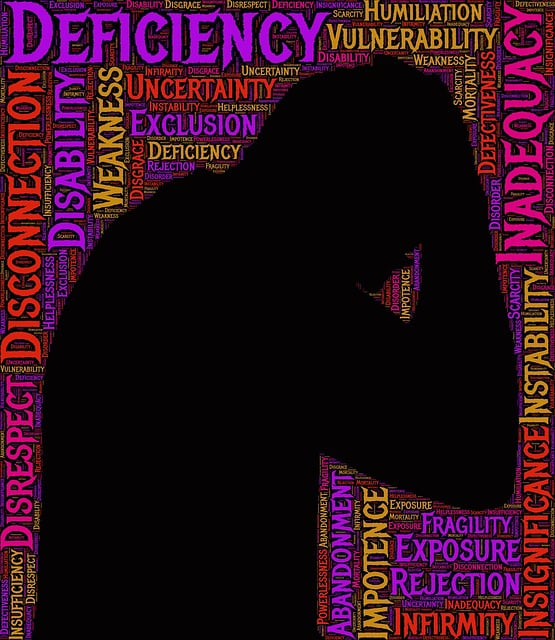Louisville's diverse population faces unique cancer challenges due to environmental factors, socio-economic disparities, and geographical influences. Tailored interventions focusing on cancer support groups, self-awareness exercises, and early detection are crucial for improving well-being. Cultural competency training is essential for healthcare providers to address sensitive issues, as community rituals and decision-making preferences impact care journeys. Evidence-based strategies like CBT and Social Skills Training, along with community support groups, offer effective crisis intervention, empowering individuals with resilience and coping mechanisms. Balanced clinical approaches integrating tailored interventions, staff training, and open communication enhance patient outcomes in Louisville Cancer Issues Therapy.
Louisville, like many cities, faces unique challenges in cancer care, as evidenced by its complex cancer landscape. This article offers a comprehensive guide to crisis intervention strategies tailored to local needs, focusing on Louisville’s cancer issues and therapy. We explore critical aspects such as identifying crisis points, implementing evidence-based practices, leveraging community support systems, and practical steps for clinical implementation. By delving into these areas, we aim to enhance the effectiveness of crisis interventions in Louisville’s cancer care ecosystem.
- Understanding Louisville's Cancer Landscape: A Local Perspective
- Identifying Crisis Points in Cancer Care: Challenges and Triggers
- Evidence-Based Strategies for Effective Intervention
- Role of Community Support Systems and Resources
- Practical Implementation and Continuous Evaluation in Clinical Settings
Understanding Louisville's Cancer Landscape: A Local Perspective

Louisville, a vibrant city with a diverse population, faces unique challenges when it comes to cancer issues. The local landscape reveals a complex web of factors contributing to elevated cancer rates. From environmental concerns to socio-economic disparities, these elements create a complex tapestry that demands tailored interventions. Understanding these nuances is crucial for developing effective crisis intervention strategies.
The city’s geography, with its industrial areas and historical sites, has led to specific environmental health issues. Additionally, limited access to quality healthcare and mental health awareness programs exacerbates the situation. Cancer support groups and self-awareness exercises can play a pivotal role in empowering residents. By fostering emotional regulation and encouraging open conversations about cancer, these initiatives can significantly impact early detection and overall well-being.
Identifying Crisis Points in Cancer Care: Challenges and Triggers

Identifying crisis points in cancer care is a complex task, as Louisville’s diverse population presents unique challenges and triggers. Cultural competency training for healthcare providers is essential to navigate these complexities effectively. Understanding the specific cultural beliefs, values, and communication styles of patients can help providers anticipate and address potential crises sensitively. For instance, some communities may prioritize collective decision-making or have specific rituals related to health and illness, which can influence their cancer care journey.
Beyond cultural factors, financial strain, emotional distress, and side effects of treatment are common triggers for crisis intervention. Many patients face Louisville Cancer Issues therapy challenges related to affordability, insurance coverage, or managing the physical and psychological impacts of cancer. Crisis intervention guidance emphasizes the role of healthcare providers in fostering positive thinking and resilience through proactive support, patient education, and connecting them with available resources.
Evidence-Based Strategies for Effective Intervention

In the realm of crisis intervention, evidence-based strategies hold the key to effective therapy for Louisville cancer issues and beyond. Research has shown that specific techniques can significantly enhance the support provided to individuals facing critical situations, be it anxiety relief or managing trauma. One such powerful approach is Cognitive Behavioral Therapy (CBT), which focuses on identifying and modifying negative thought patterns and behaviors. By helping clients challenge unhelpful beliefs and replace them with healthier alternatives, CBT equips them with coping mechanisms that can be applied in various settings, promoting long-term resilience.
Additionally, Social Skills Training has proven to be invaluable in fostering connections and building support networks. This strategy targets the social aspects of crisis management, teaching individuals how to navigate interpersonal interactions effectively. By mastering communication skills and developing empathy, those facing challenges like cancer can enhance their support system, leading to better mental health outcomes. Such evidence-based interventions not only provide immediate relief but also equip individuals with tools to navigate future crises, ensuring a more robust and resilient community.
Role of Community Support Systems and Resources

Community support systems play a pivotal role in crisis intervention strategies, especially when addressing Louisville cancer issues therapy. These networks offer a range of resources that are vital for comprehensive care. Local support groups, for instance, provide a safe space for individuals facing similar challenges to connect, share experiences, and gain emotional intelligence. This sense of belonging can significantly enhance coping mechanisms and self-esteem improvement, which are essential aspects of the healing process.
The integration of community resources allows mental health professionals to conduct effective risk assessments tailored to Louisville’s unique needs. By leveraging these systems, practitioners can ensure that individuals in crisis receive holistic care, addressing both psychological and social dimensions of their struggles. This collaborative approach not only complements therapy but also fosters a sense of resilience among those facing cancer-related challenges.
Practical Implementation and Continuous Evaluation in Clinical Settings

In clinical settings, effectively implementing crisis intervention strategies requires a structured yet flexible approach. Healthcare professionals in Louisville should adapt these methods to address the unique cancer-related issues faced by patients. A practical implementation involves integrating evidence-based techniques into routine care, ensuring that staff are adequately trained and prepared to handle emotional crises. Regular, unbiased evaluations are crucial; they allow for continuous improvement and enable professionals to tailor interventions to individual needs, enhancing patient outcomes.
Additionally, fostering a supportive environment that encourages open communication can significantly aid in self-esteem improvement and confidence boosting. By incorporating mind over matter principles, patients can be empowered to manage stress and anxiety associated with cancer therapy. This holistic approach, tailored to each patient’s journey, is vital in navigating the challenges of Louisville Cancer Issues Therapy and promoting positive mental health outcomes.
Louisville’s cancer landscape presents unique challenges, with various crisis points identified in care delivery. By understanding these local issues and implementing evidence-based strategies, such as community support systems, healthcare professionals can significantly enhance patient outcomes. The practical application of these interventions, combined with continuous evaluation, ensures that Louisville cancer therapy remains effective and tailored to the evolving needs of the community, ultimately improving overall cancer care and management in the region.














